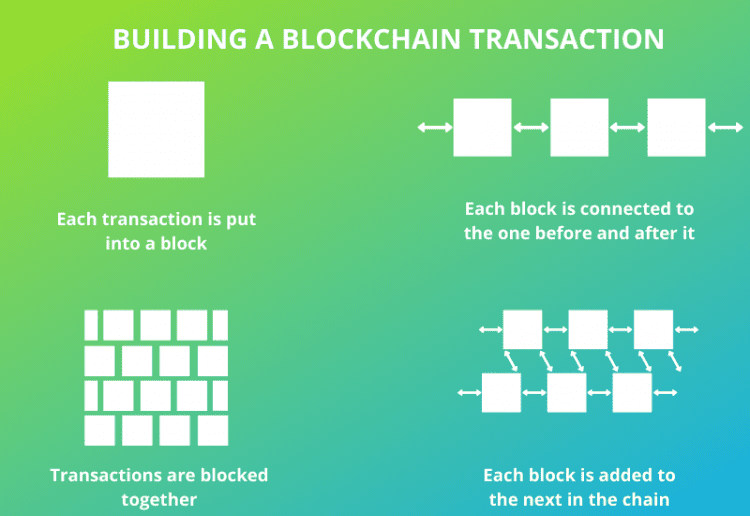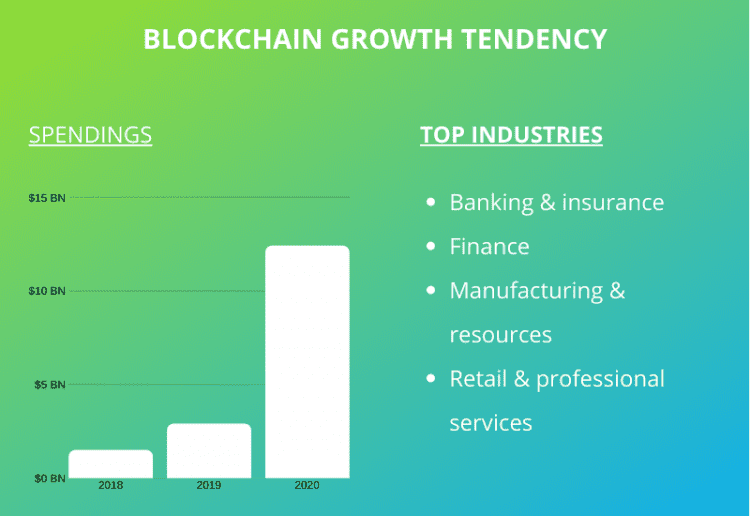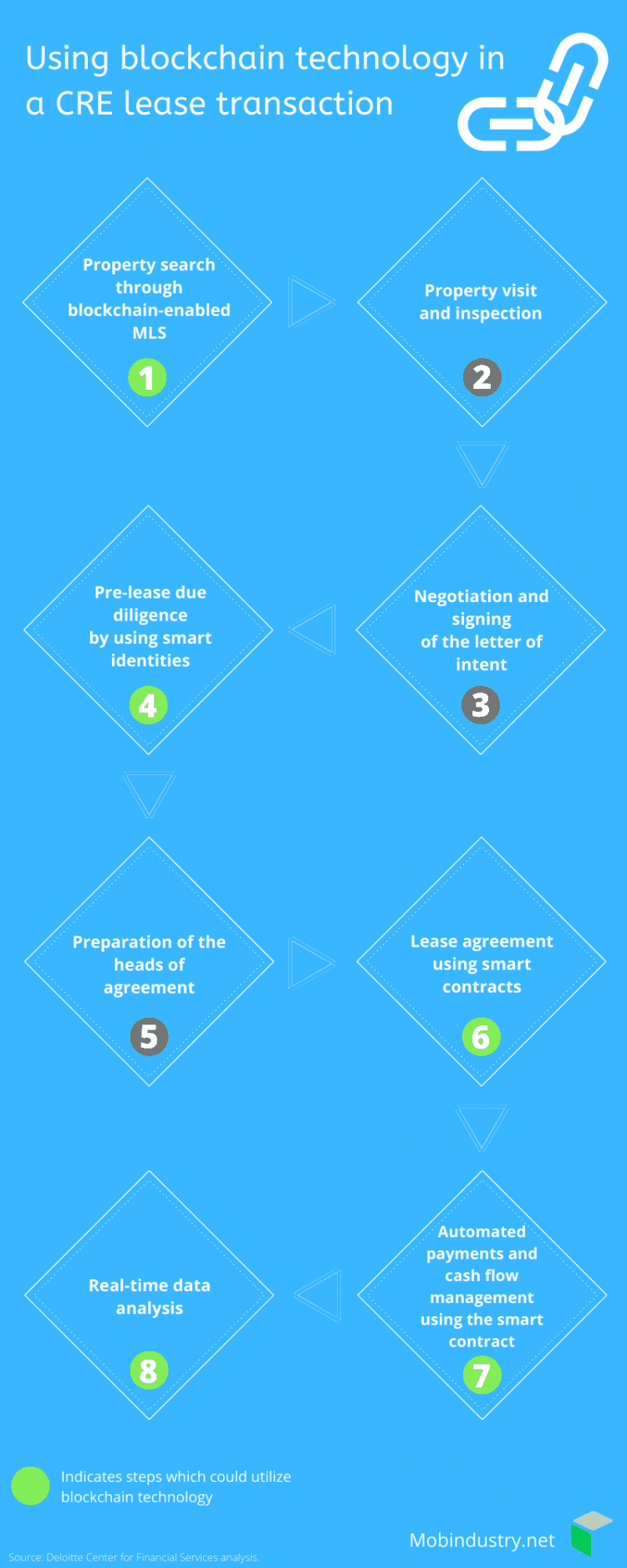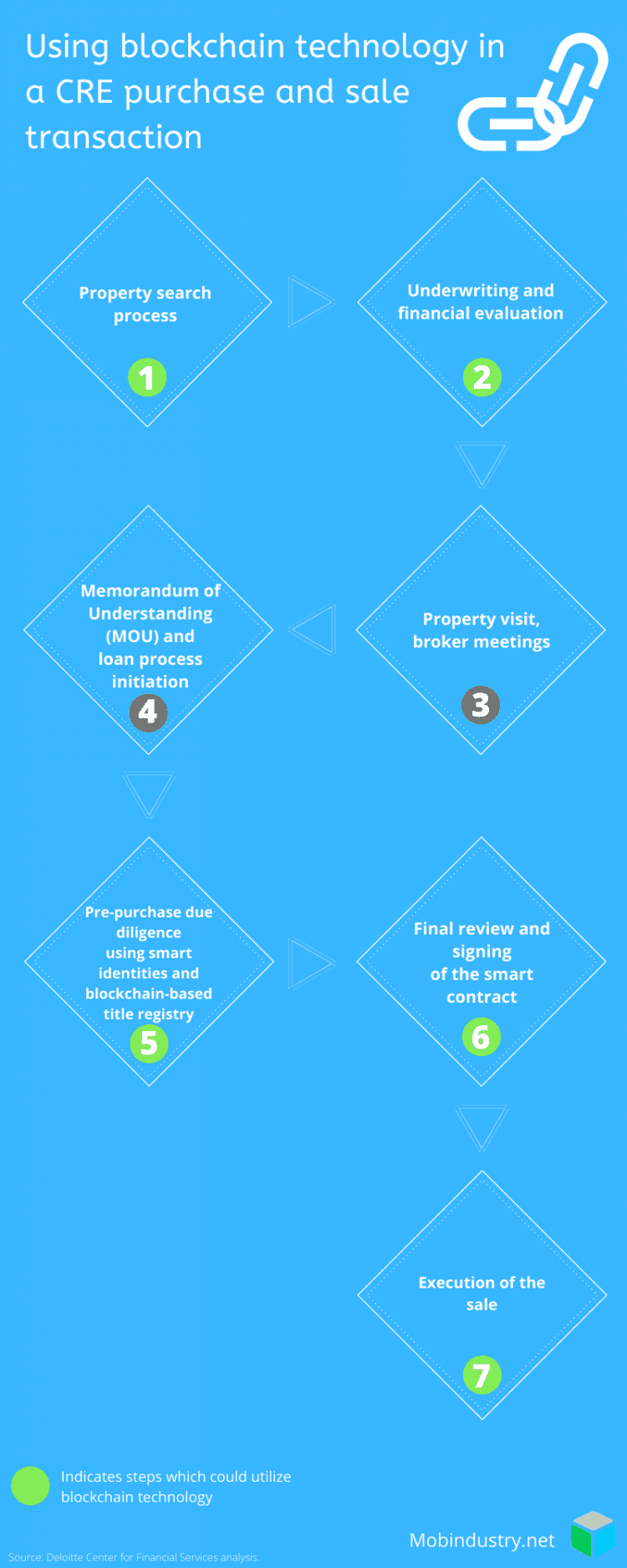How to Use a Blockchain in Commercial Real Estate
If you’re wondering what a blockchain is and if it will be useful for your real estate business, this article is for you. I’ll explain how a blockchain works, who successfully uses blockchains, and what benefits a blockchain offers to commercial real estate companies.
How a blockchain works
Blockchain technology is all the rage nowadays. More and more entrepreneurs are starting to implement it in their businesses. Today, we’ll discuss how blockchain development for real estate is transforming the industry. For owners of real estate businesses, it’s not necessary to have an in-depth knowledge of how the blockchain works. But it’s important to understand the basics.
A blockchain is a transparent ledger that lets you track things using a unique identifier. This technology helps to avoid confusion about who owns what because the ledger is always updated and accurate. Records in the ledger are stored on such a large number of servers that no one can manipulate them.

Why you should use a blockchain in real estate
If you have doubts about using a blockchain in your commercial real estate business and what impact it will have on the processes within your CRM, we suggest looking at blockchain statistics.
Let’s see what industries use blockchains today and how much they spend on blockchain technologies:
- Banking & insurance – $1 billion
- Finance – over $700 million
- Manufacturing & resources – $653 million
- Retail and professional services (including real estate) – $642 million
Commercial real estate is one of the industries that can benefit from implementing blockchains.

Benefits of blockchain in real estate
- A blockchain allows you to record transactions almost in real time. It also eliminates friction and reduces risks as well as limits the ability to return or cancel transactions.
- Blockchain technology allows any two parties to directly interact with each other without the need for a trusted third party.
- A peer-to-peer network records a public transaction history that’s extremely accessible.
- The blockchain stores a specific and verifiable record of every single transaction, reducing the risk of double-spending, fraud, and transaction manipulation.
- The blockchain model has integrated crypto-economics, which encourages participants to continue checking blocks. This makes it impossible for anyone to change previously recorded transactions.
How commercial real estate is being transformed by blockchain technology
Blockchain as a digital ledger
A blockchain is a database composed of digital blocks of transaction data. Each block has a timestamp and connects to the previous block with the help of secure code. A blockchain can be described as a digital ledger that records transactions. Usually, data is stored on a single server with a single owner.
A blockchain does things differently, duplicating data across a number of computers and creating a self-managed distributed ledger. Because blockchain data is scattered across self-managed servers, a blockchain provides everyone who takes part in a transaction with safe data sharing.
Due to this, blockchain technology is perfect for securely recording things like property transactions, mortgages, and shareholder agreements.
After all, data on a blockchain is impossible to change or delete.
Smart contracts
Blockchains in commercial real estate can smooth out and speed up contract management and deal closures. Contracts implemented with blockchain technology are called “smart contracts.” These contracts automate every step of a lease or sale agreement. Payments can be received instantaneously, at any time, without regard to business hours. Blockchain technology helps to create, authenticate, and audit contracts in real time, around the world, with no need for intervention from an intermediary. Parties to a contract can access it with a personal digital key, reducing the probability of fraud.
Transparent marketplace
Thanks to the usage of NFTs for real estate, all property ownership data can be available to the public and updated in real time. This creates a trusted and transparent marketplace that’s open to the public.
Unique identity verification
Blockchain technology brings strong identity verification to commercial real estate. Identification is performed by authorized agents. Blockchain-based verification lets you avoid double checks and reduces costs. Banks, government agencies, and reputable third-party agencies can improve their verification process with a blockchain digital identity platform.
Efficient and reliable property search
A multiple listing service (MLS) that runs on blockchain technology enables data to be spread across a peer-to-peer network. This gives brokers more control over their data. Accordingly, it increases trust, as listings become more accessible.
A blockchain-implemented MLS contains detailed information on property locations and addresses, comparable rental rates, capital values, ownership history, tenant details, the age of a property, and title clarity. This results in lower costs for market participants to access this data.
Reduce fraud and simplify title records and checks
A blockchain-powered digital property identity can feature a property’s history, location, and title details. Typically, buyers and banks turn to the digital identity of a property for title evaluation since any change to existing data would be made accordingly on several blockchain nodes.
The encrypted nature of blockchains makes it difficult for anyone to commit fraud.
Improved security and transparency can reduce risks of both title fraud and unexpected costs by making the title check process as simple as possible.
Such a digitalized and transparent approach can help minimize the time for title transfers, decrease corruption, and increase the transparency of land ownership.
How can blockchain technology improve CRE leasing, purchases, and sales?
Blockchain technology in the CRE leasing process
Commercial real estate (CRE) owners have a number of challenges in leasing transactions. Here’s a list of challenges that blockchain technology can eliminate:
- Ineffective property search because of fragmented listings data
- Slow, paper-driven, mostly offline due-diligence processes
- Complex management processes for ongoing lease agreements, property operations, and cash flows
- Absence of real-time data influencing management’s decision-making abilities

Blockchain in CRE transactions
A standard CRE transaction process is quite difficult and includes several steps. It can be expensive and time-consuming for buyers and sellers to identify a property and close a transaction. Here are a few challenges that CRE owners and institutional investors face when buying and selling property:
- Ineffective property search process
- Slow, offline due-diligence process
- High title insurance and related costs
- Time-consuming, expensive, and opaque financing execution and payments
A transaction becomes more difficult when a seller uses mortgage financing. Commercial real estate parties can simplify this process with the help of blockchain technology.

What real estate companies use blockchains?
Now that you know why a blockchain is a good idea for commercial real estate, let’s see what companies use it to their benefit.
Here’s a list of seven real estate companies that use blockchain technology:
PROPERTYCLUB
PropertyClub is a real estate platform based in New York that has implemented blockchain technology to improve processes like marketing, searching for, buying, selling, and investing in properties. The company uses smart contracts to conduct real estate transactions digitally with the help of cryptocurrencies like Bitcoin and its own PropertyClub Coin (PCC).
MANAGEGO
ManageGo is another New York real estate company that’s integrated blockchain technology to improve the user experience for rental property owners. It uses ledger-backed software to help property managers and owners process payments, perform in-depth credit background checks, and manage maintenance ticketing. The company uses distributed ledger technology to help owners get a more transparent view of payment histories and renter backgrounds.
REALBLOCKS
RealBlocks creates new opportunities for real estate investing by allowing investors to purchase a partial interest in real estate rather than entire portfolios or assets. RealBlocks uses tokenization applied using blockchain technology. The use of blockchain technology reduces fees, speeds up processes, and provides liquidity options.
SMARTREALTY
SMARTRealty is a Seattle real estate company that uses smart contracts to enact and maintain property purchase and rental agreements. Processes like paying rent, taking out mortgages, and purchasing a home become way more secure with the use of a blockchain.
PROPY
Propy makes use of smart contracts to conduct international property transactions. The platform lets buyers, sellers, and agents use various smart contracts that speed up the real estate process.
THE BEE TOKEN
The Bee Token — a San Francisco real estate company — uses blockchain technology to power its home sharing platform. The Bee Token uses blockchain technology in an untraditional way for commercial real estate companies, letting homeowners rent out their houses or separate rooms in exchange for cryptocurrency.
CPROP
CPROP (CryptoProperties) is a company that builds blockchain data applications for finding new property investment opportunities, minimizing risk, and locating problems in the real estate industry. CPROP’s technology is used in different real estate areas including brokerage transactions, investment management, property development, finance, and insurance.
Final thoughts
The world is being taken over by a technological revolution, and the blockchain is playing a big part in it. In this article, I’ve explained how the blockchain works and how it can improve your CRM. I’ve also discussed the key benefits and opportunities that come with the blockchain in the real estate industry. Blockchain technology in commercial real estate can improve transparency and efficiency. It can also remove several inefficiencies, saving money for CRE owners.
To sum up, here’s a list of reasons to implement blockchain technology in commercial real estate:
- A blockchain serves as a digital ledger
- Convenient smart contracts
- Transparent marketplace
- Identity verification
- Efficient and reliable property search
- Easy way to reduce fraud

